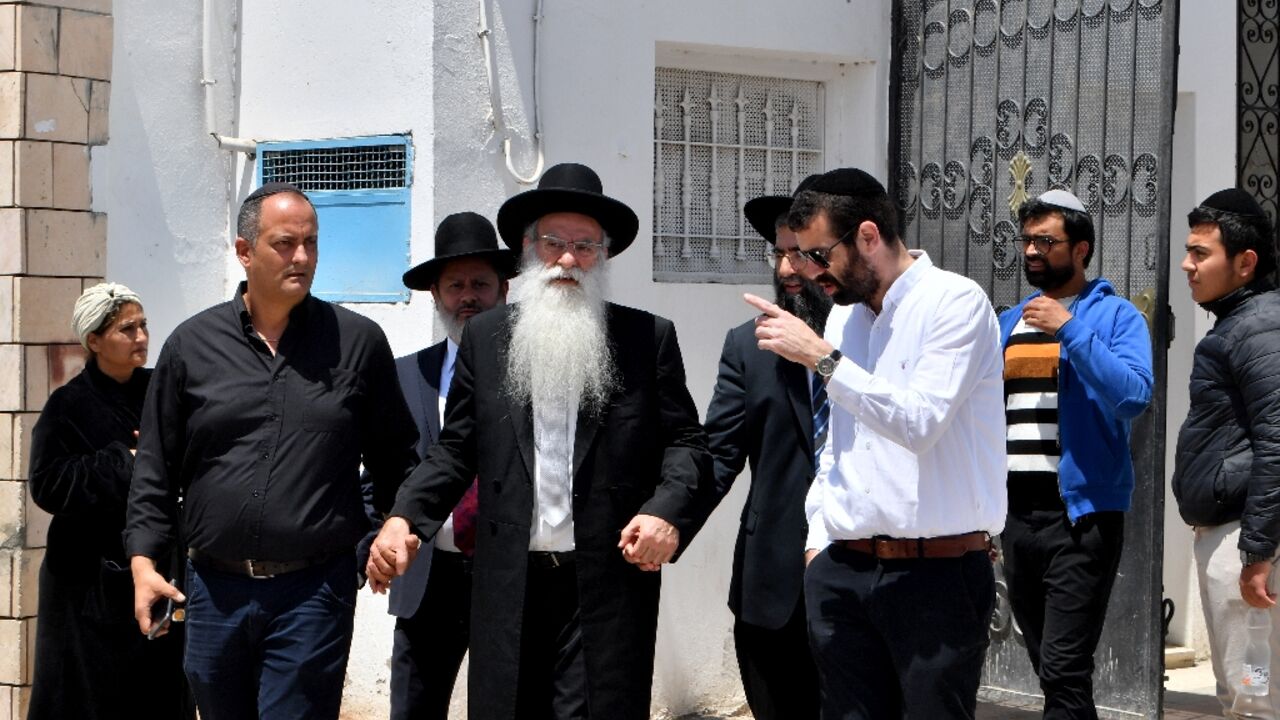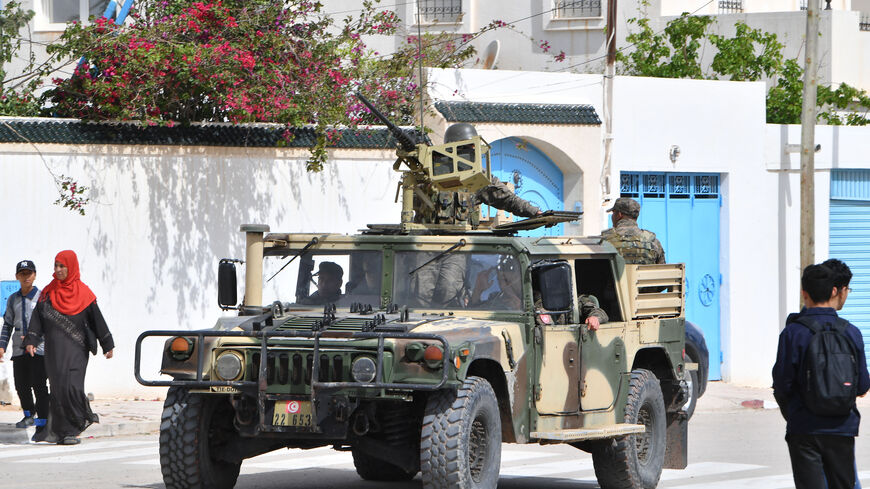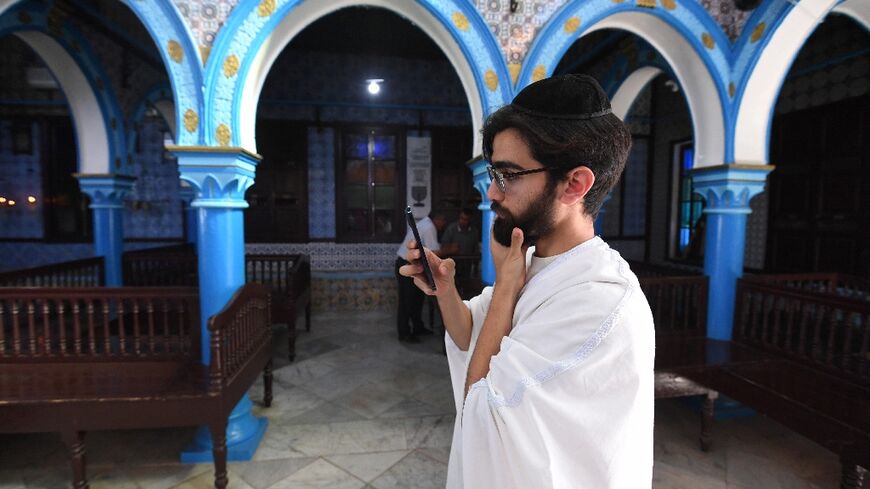Shock, grief after Tunisian policeman kills 5 outside synagogue

Tunisia's small Jewish community was in shock and mourning Wednesday after a bloody shooting rampage in which a police officer killed five people outside Africa's oldest synagogue.
The shooting Tuesday sparked mass panic during an annual Jewish pilgrimage at the historic Ghriba synagogue on the resort island of Djerba, which was quickly locked down by security forces.
"I never believed that I would experience such terror," recounted one survivor, Raoudha Seibi.
The attack was "a real nightmare", said a tearful Seibi, a member of the Tunisian Association for the Support of Minorities. "I am still in shock."
Authorities were investigating the motive of the killer, who was shot dead after killing three police officers and two visitors, a French-Tunisian and an Israeli-Tunisian man.
French President Emmanuel Macron vowed to keep up the fight "against anti-Semitic hatred", and Israeli Foreign Minister Eli Cohen said the bloodshed proves "evil and hatred are still there".
The Ghriba pilgrimage was previously targeted in a 2002 suicide truck bombing that killed 21 people.
The gunman, wearing his police uniform and a bulletproof vest, started the attack by killing a fellow officer and taking his gun and ammunition at the island's port, said officials.
He then went to the Ghriba synagogue site and opened fire outside, sparking terror on the final day of the annual pilgrimage.
The two victims were named as Tunisian-Israeli dual national Aviel Haddad, 30, and his cousin, Benjamin Haddad, 42, who held both Tunisian and French nationalities.
In the ensuing gun battle, he also wounded six police officers, two of whom later died, hospital sources said.
"Around 8:00 pm we heard the sound of gunfire," recounted another eyewitness, an elderly Israeli man who gave his name as Elyahu. "The police closed all the doors and we couldn't get out. We couldn't do anything for more than three hours.
"Some were praying, some were crying."
- 'Cowardly attack' -
Investigations are continuing on the motive behind the "cowardly attack", the interior ministry said, refraining from referring to the shooting as a terrorist attack.
The shooting was Tunisia's first deadly attack on foreigners since 2015, when Islamist gunmen in Tunis and Sousse killed dozens of foreign holidaymakers.
More than 5,000 Jewish faithful, mostly from overseas, participated in this year's event, said organisers. The annual pilgrimage only resumed in 2022 after two years of pandemic-related suspension.
The United States "deplores the attack in Tunisia coinciding with the annual Jewish pilgrimage that draws faithful to the El Ghriba Synagogue from around the world," said State Department spokesman Matthew Miller.
"We express condolences to the Tunisian people and commend the rapid action of Tunisian security forces."
Coming between Passover and Shavuot, the pilgrimage to Ghriba is at the heart of Jewish tradition in Tunisia, where only about 1,500 members of the faith still live -- mainly on Djerba -- compared with around 100,000 before independence in 1956.
Pilgrims travel to the site from Europe, the United States and Israel, although their numbers have dropped since the deadly bombing in 2002.
Tuesday's shooting came as the tourism industry in Tunisia has finally rebounded from pandemic-era lows, as well as from the 2015 attacks.
Tunisia suffered a sharp rise in Islamist militancy after the Arab Spring mass protests ousted longtime despot Zine El Abidine Ben Ali in 2011.
But authorities say they have made significant progress in the fight against terrorism in recent years.
The Ghriba attack also comes as Tunisia endures a severe financial crisis.
The downturn has worsened since President Kais Saied seized power in July 2021 and rammed through a constitution that gave his office sweeping powers and neutered parliament.











